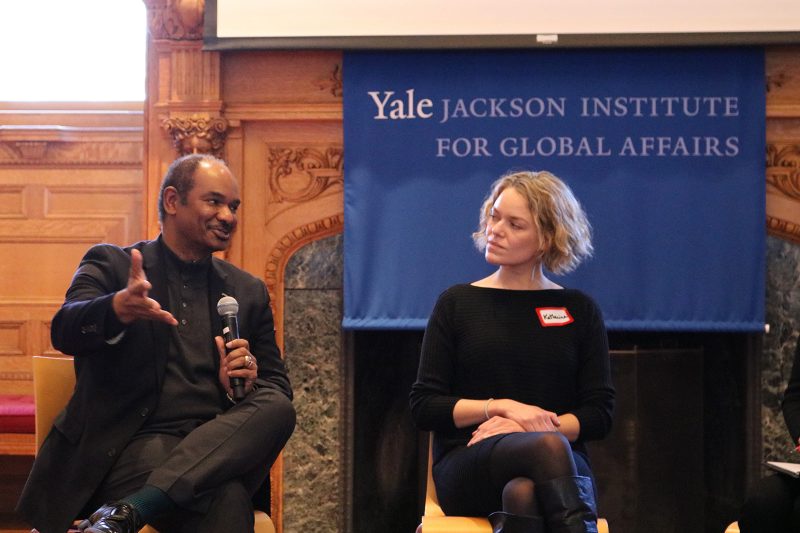Last Friday, we hosted a workshop at Jackson, “Leading complex teams: How to manage unconscious bias in your organization.” The workshop brought together 40 students from Jackson, the School of Management, the School of Forestry & Environmental Studies, the Law School and Yale College to discuss how leaders can foster diversity and put it to work for the benefit of their organizations.
For this event, we wanted to make sure the crowd included more than the “usual suspects” for a discussion about gender bias. We wanted a room filled with people of varied backgrounds, goals, and exposure to gender and bias issues. Our response was a targeted marketing campaign that resulted in an attendee list with an even gender balance, even shares from Global Affairs and the School of Management, and notable representation from multiple other academic programs.
The timing was important, too: many students are graduating in May and thinking of their next steps. It was a good moment to reflect on our individual leadership styles and to talk about how diversity could benefit the organizations we’re about to join.
The workshop opened with an interactive test for implicit associations, i.e. the subconscious shortcuts we all take to match people’s identities with particular attributes. While natural and firmly rooted in human psychology, these associations, if un-managed, can subtly skew our opinions and change our decisions of who to befriend, who to hire, what work to assign them, etc. The more these choices depend on unchallenged associations, the more likely they are to deprive our organizations of the talent, creativity, and innovation that a diverse team can bring.
Participants wrestled with the uncomfortable realities of bias and its effects in a series of small and large group discussions. A key theme of the event, however, was that awareness and acknowledging bias is only a first step. It means little without action. In other discussions, participants shared their own best-practices, and learned about those used by successful organizations, to limit bias and make decisions that optimize performance. These included formal policies – like establishing transparent, measurable criteria for promotion – and informal strategies – like how to criticize bosses without causing undue confrontation or “blow-back.”
A highlight of the workshop was a panel composed of Katherine Maher, Executive Director of the Wikimedia Foundation, Rob Gordon III, President of BeTheChange, Inc. and former Deputy Undersecretary of Defense, and Stefanie Johnson, Assistant Professor of Management at Leeds School of Business. Katherine shared her experience working at the forefront of the male-dominated tech industry and its intersection with the largely-female nonprofit sector. Rob recounted borrowing best practices from social service organizations to optimize his diverse team at the Pentagon. Stefanie brought to bear her own cutting edge research on the psychological roots of bias (and simple tools to mitigate its effects).
The workshop was well-received by participants and we learned a great deal putting it on. We are thankful to be surrounded, at Jackson and at Yale, by extremely thoughtful students with a wide variety of skills and experiences.
